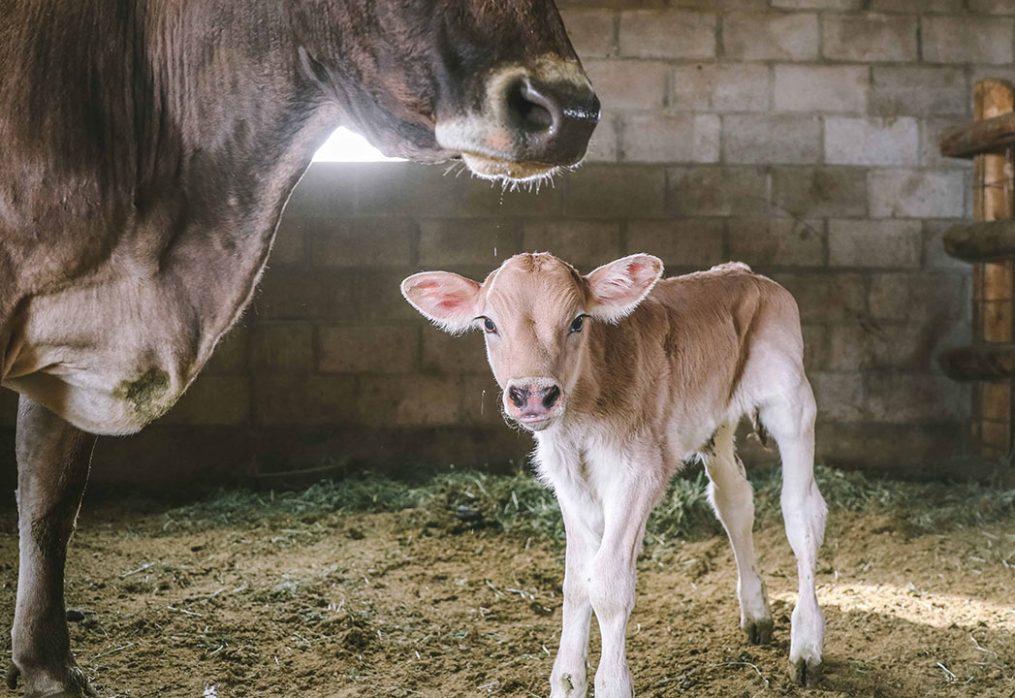The Role of Genetics in Dairy Cow Breeding: Enhancing Milk Production and Herd Improvement
Genetics matters:
Genetics play a vital role in dairy cow breeding programs, influencing various traits that directly impact milk production, disease resistance, and overall herd improvement. As a dairy farmer in Kenya, understanding the significance of genetics and selecting the right breeding strategies is essential for building a productive and resilient dairy herd. Read on as we explore the importance of genetics in dairy cow breeding and highlight key traits to consider for optimal results.
1. Milk Production Traits:
One of the primary objectives of dairy cow breeding programs is to enhance milk production. Genetic selection allows farmers to choose cows with superior milk-producing traits, such as:
– Milk Yield: Selecting cows with high milk production potential ensures increased milk output per lactation, boosting profitability.
– Milk Components: Traits like higher butterfat and protein percentages contribute to improved milk quality, increased processing value, and enhanced nutritional content.
– Persistency of Lactation: Cows with prolonged lactation curves, maintaining high milk production over an extended period, are valuable for consistent milk supply throughout the year.
2. Disease Resistance Traits:
Genetic selection also plays a crucial role in improving disease resistance within dairy herds. By focusing on traits that enhance the cow’s natural ability to fight diseases, farmers can reduce the impact of common ailments. Key disease-resistant traits to consider include:
– Mastitis Resistance: Identifying cows with genetic predispositions for lower somatic cell counts and reduced mastitis susceptibility can significantly decrease the incidence of this common udder infection.
– Lameness Resistance: Selecting cows with sound feet and legs, combined with good locomotion traits, helps prevent lameness issues, reducing associated production losses.
– General Health and Immunity: Genetic selection for overall health and immunity traits improves the cow’s ability to withstand various diseases and reduces the reliance on antibiotics.
3. Herd Improvement:
Genetics play a fundamental role in enhancing the overall quality and performance of the entire dairy herd. Breeding decisions focused on herd improvement can include:
– Conformation: Selecting cows with correct body structure, udder conformation, and functional traits promotes longevity, ease of management, and efficient milk production.
– Fertility and Reproduction: Genetic selection for improved fertility traits, such as shorter calving intervals and higher conception rates, leads to more efficient breeding programs and faster genetic progress.
– Longevity: Choosing cows with genetic predispositions for extended productive lifespans helps reduce replacement costs and ensures a sustainable and profitable herd.
Understanding the role of genetics in dairy cow breeding is crucial for dairy farmers in Kenya. By selecting cows with superior milk production traits, disease resistance, and overall herd improvement, farmers can build a productive, healthy, and sustainable dairy herd. Consult with breeding specialists, utilize available genetic evaluation tools, and stay informed about advancements in genetic technologies to make informed breeding decisions. Remember, a well-planned breeding program focused on genetics is a powerful tool for maximizing milk production, improving herd health, and driving the long-term success of your dairy farm.
